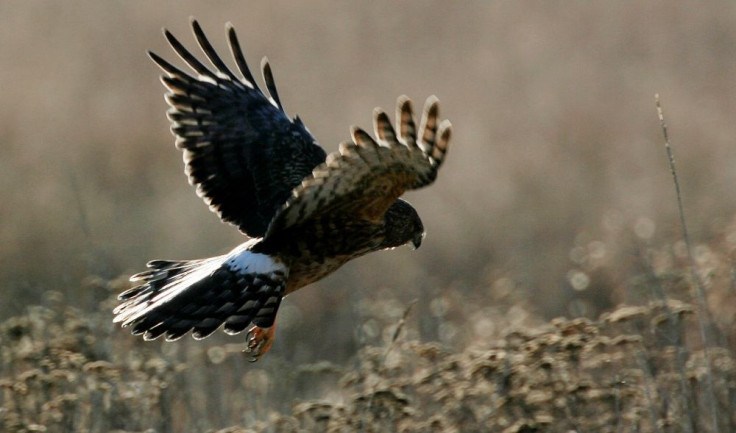Flameproof Bird: Vancouver Hawk Takes World's Most Polluted Bird Title

A hawk usually found in Vancouver was given the title of “the most polluted bird” in the world by scientists at the McGill University. The researchers made a startling discovery after studying the bird known as Cooper’s hawk.
A team of Canadian scientists collected dead birds to test them for pollution exposure. They studied liver tissues of 13 hawks and surprisingly found that these have been heavily polluted with polybrominated diphenyl ether, or PBDE, a chemical used as a flame retardant for TVs, carpets and computers. While this type of chemical has long been banned in Canada and in the U.S. in 2000s, it has been found present in liver tissues of the wild bird, which suggests that the chemical lingers in the environment and affects wildlife.
Larry Pynn from the Vancouver Sun wrote that exposure to chemicals did not kill the hawks. However, they affected the creature’s thyroid hormones, consequently affecting its behaviour, growth and metabolism. Kyle Elliot, author of the study found in Science of the Total Environment, also said that if the bird were female, the chemicals would have arrested egg embryo development.
McGill University stated in their April 22 release that the levels of the chemical found in one of the 13 Cooper’s hawks was 196 parts per million, a number that is way higher than the recorded number of birds in Californian cities or in China’s electronic waste site. "We were really surprised to see such high levels in greater Vancouver, which you think of as green and progressive," said Elliott.
Elliot notes that there is a much higher level of the chemical found in the hawk’s favourite meal -- the starlings. These starlings can be found nearby landfill sites where PBDE levels are 15 times higher than any starlings found in Vancouver area, the university news release states.
“We can only hope that because many forms of PBDEs have now been banned and the levels of these contaminants are rapidly disappearing from herons and cormorants in Vancouver; the same will be true for other bird species,” he said.
To report problems or leave feedback on this article, email: wendylemeric@gmail.com.





















